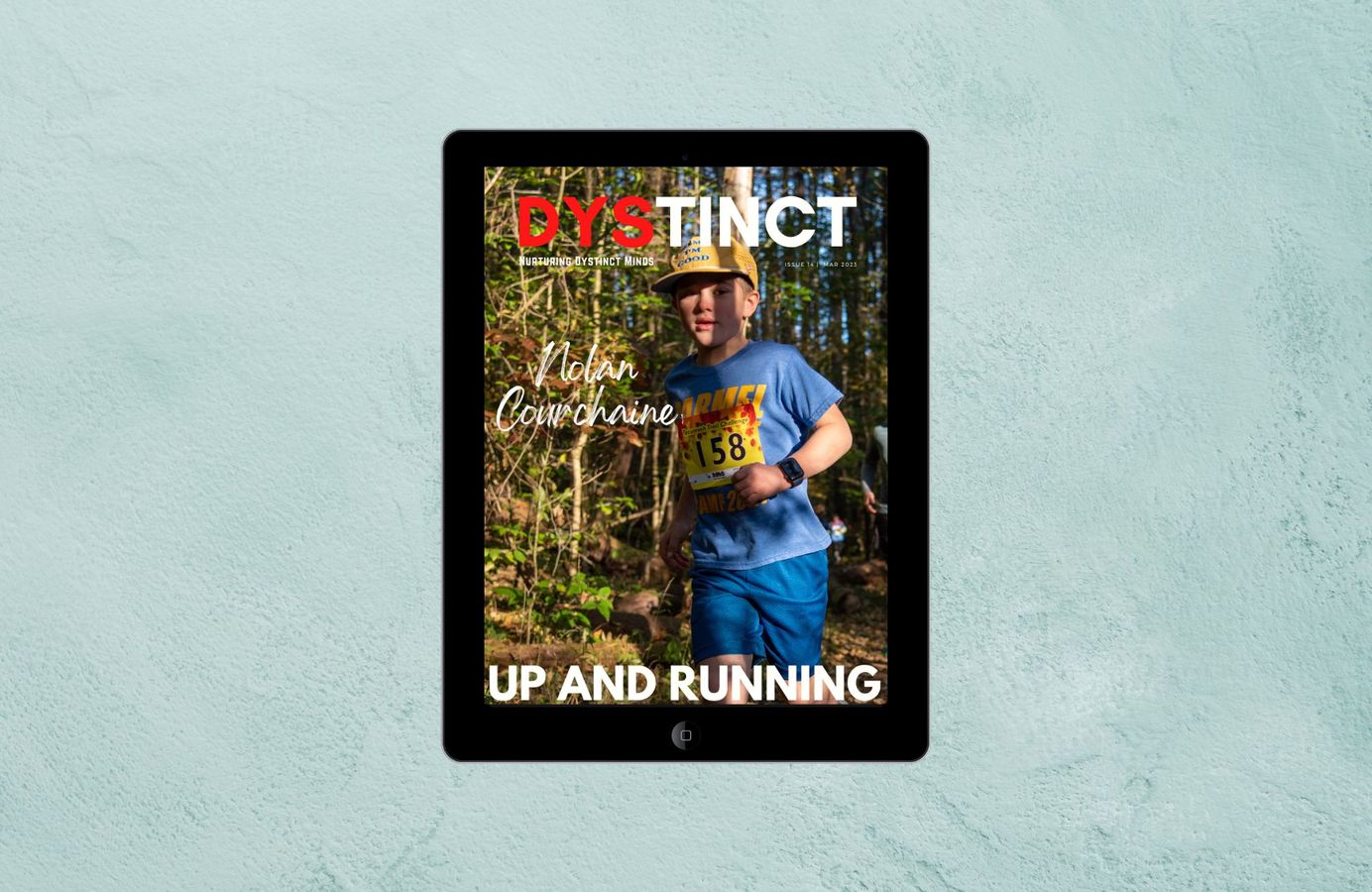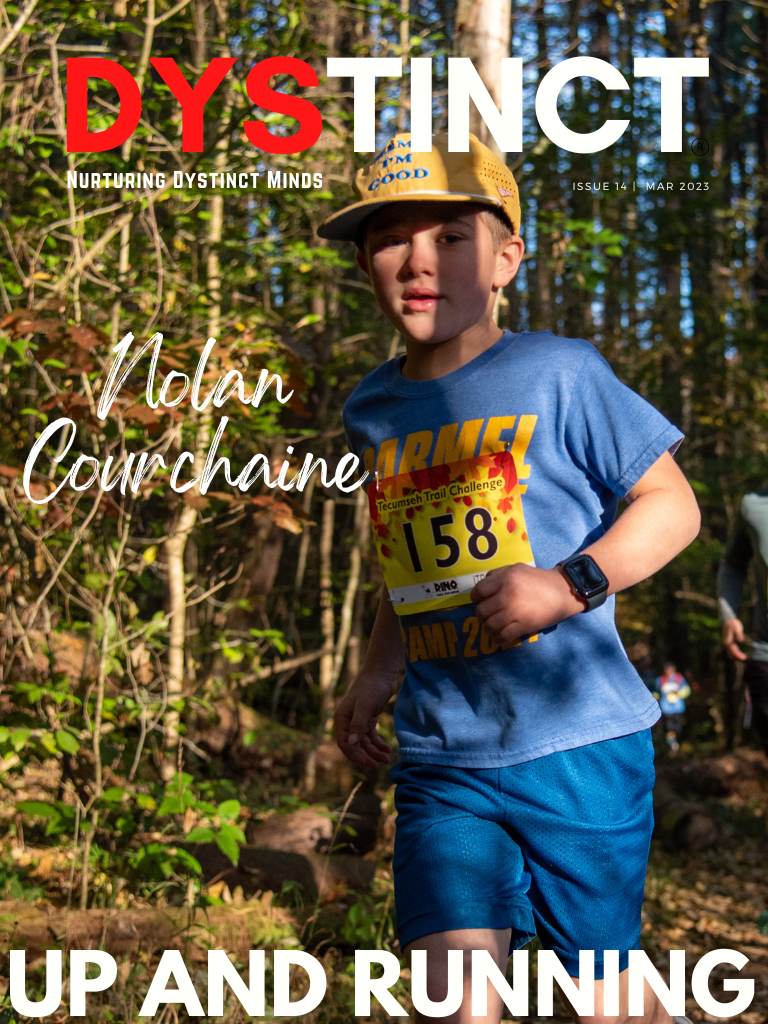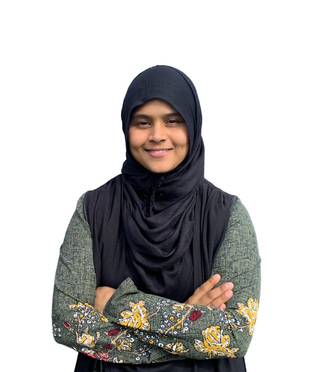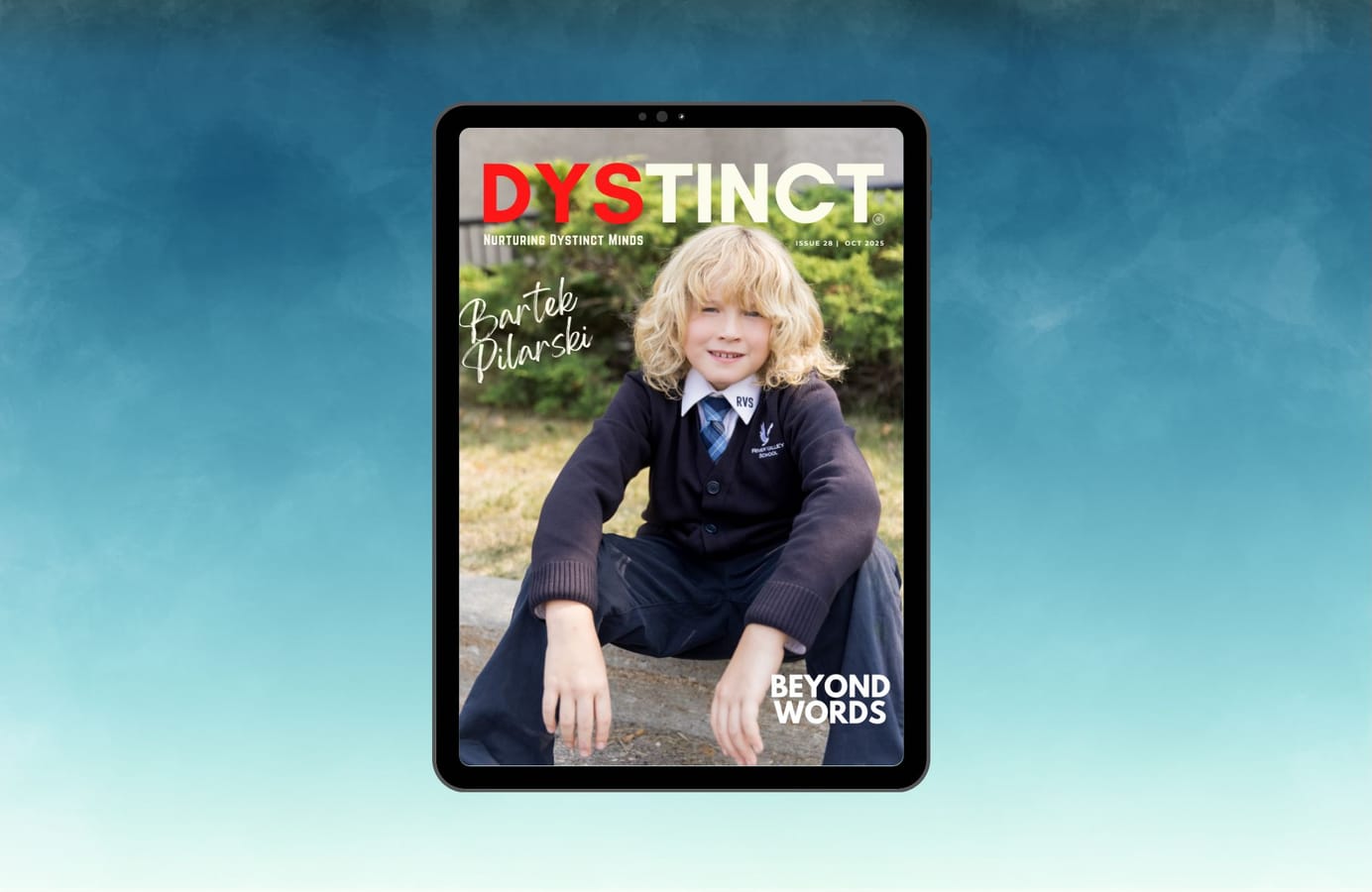
Issue 14: March 2023 Dystinct Magazine
Dystinct magazine's 14th issue: March 2023 is available to download on Apple and Android devices. The issue covers inspirational stories from children and adults with learning difficulties (dyslexia, dysgraphia, dysgraphia and dyspraxia).
- How to Access Dystinct Magazine
- On the Cover
- Topics covered in this issue (includes links to access on website)
- Editor's Note
HOW TO ACCESS DYSTINCT MAGAZINE
👉 Read further below to access all the content of the magazine on the website layout. Check links to each article in Topics covered in this issue
The magazine can be accessed on your mobile and tablet devices.
👉 Apple App Store - iOS iPad/iPhone
👉 Google Play Store - Android devices
👉 Libby Apple iOS | Google Android
👉 Zinio Newstand | MagsFast Newstand | Magzter Newstand
ON THE COVER

On the cover is Nolan Courchaine.
Nolan Courchaine is nine-years old and is from Indiana, USA.
Nolan is an inspiring young boy with a passion for adventure and fun, infectiously encouraging those around him to embrace the joys of life. According to his mother, Keatha Courchaine, Nolan is a perpetually happy child who finds joy in every aspect of life, including his passion for sports and making people smile. Every season presents a new opportunity for Nolan, from running cross country and playing football in the fall to hockey in the winter and shooting sports and running in the spring. When not participating in sports, he spends his time outdoors with his pet corgi Rosie and his brother and best friend, Palmer He also loves to fish and even caught a small shark in the Florida Keys last year.
TOPICS COVERED IN THIS ISSUE
The March 2023 issue of Dystinct Magazine brings to you:
An essay written by 14-year-old Nate Haste to emphasise the importance of testing children for learning disabilities in year one to provide them with appropriate support and strategies early on to prevent long-term negative effects.
Dr Nathaniel Swain reflects on how and why his preferred method of supporting struggling learners in classrooms has shifted from individual learning intervention and differentiated groups to robust whole class instruction at tier 1 that allows struggling learners to realise their academic potential through repeated exposure to more of the same excellent quality instruction as their peers.
Dr Sarah Moseley emphasises the importance of developing emotional literacy in children, particularly those who struggle, to help them find internal motivation and overcome adversity on their path to success.
This is the story of Mila Smith, an eleven-year-old author from Trinidad and Tobago. Despite facing challenges with reading and writing, Mila wrote and self-published her book "This is Mila" at the age of eight, which celebrates her strengths and unique qualities.
Dr Tessa Weadman highlights the benefits of shared book reading for children's oral language and early literacy development and provides strategies for parents to engage in interactive reading with their children.
Dr Jennifer Petrich, Sara Lee, and Bradley Johnson narrate how they embarked on a journey of structured word inquiry with struggling students, thereby leading them to understand the power of the English writing system, fostering connections in the meaning and structure of words, and empowering them to rewrite their own stories with their newfound confidence and independence.
Helen Trethewey explains how task initiation, an executive functioning skill, can be a genuine difficulty for many students and how educators can help students overcome struggles with task initiation in classrooms.
The story of nine-year-old Nolan Courchaine, the determined young boy from Indiana, USA, who has taken up running as a means to raise funds to give back to his school which has played a significant role in his academic and social development.
Holly Ehle discusses what current research reveals about how the brain processes and stores phonemes and graphemes in the brain and what implications that science has for classroom instruction that seeks to teach letter-sound correspondences and the alphabetic principle.
Sarah Sharpe discusses the importance of adopting a strengths-based approach when addressing the learning needs of neurodiverse individuals and provides practical tips on how educators can ensure neurodiverse students are provided with every opportunity to reach their full potential.
Cindy Goldrich discusses the social and emotional impact of ADHD and Executive Function challenges on learning, motivation, behavior, and the family system and provides strategies for teachers and parents to support children with ADHD in the classroom.
Joanna Migo demonstrates how the wondrous world of wordless picture books introduces children to metacognitive reading strategies while promoting visual literacy, imagination, and language development, paving the way for later reading success.
The journey of William Jack, the dyslexic entrepreneur behind the Sussex-based robotic pizza vending machine company called Pizza Rebellion that won the Best UK Business Innovation award at the Pizza, Pasta and Italian Food Association awards in 2022.
EDITOR'S NOTE
These are words of wisdom shared by William Jack, the dyslexic entrepreneur whose ingenious concept of robotic pizza vending machines won the Business Innovation award at the Pizza, Pasta and Italian Food Association awards held in 2022. These lines are a powerful reminder highlighting the importance of understanding and supporting individuals with learning disabilities. As parents and educators, it is crucial to recognize that dyslexia is a learning difference and not a character flaw or a result of laziness.
By embracing dyslexia as a unique and valuable part of our collective human experience, we can help individuals build confidence and self-esteem, which are essential for success in all areas of life. Therefore, it is crucial to create a supportive and inclusive environment for individuals with dyslexia at schools, workplaces, and home, where they can feel supported enough to overcome their struggles and explore their strengths. This starts with recognizing dyslexia as a learning difference, not a source of shame or frustration.
I hope you enjoy reading this issue and all the specialist content covered.
Please get in touch with me if you have any feedback, ideas, or stories to share to change the narrative surrounding learning disabilities.
Thanks
Zahra Nawaz Shafeeq



